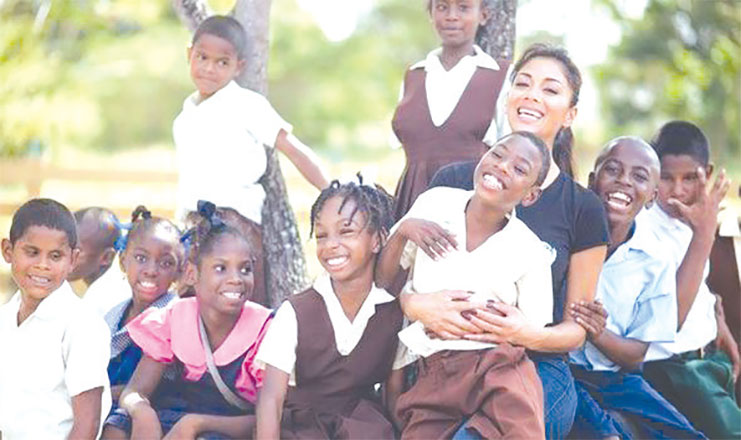AS a Guyanese, have you ever really given much thought to the kind of Guyana you want to see? Of course, we all (I hope) want to see a ‘developed’ Guyana, but intrinsically, what does a developed Guyana mean? What does it constitute?
Last week, we observed Guyana’s 54th anniversary as an independent nation. For those of us in the Guyana Students’ Association in Trinidad and Tobago (GuySATT), we wanted to do a little project; hopefully, something that was honest and meaningful, as we celebrated the occasion with all Guyanese. Cognisant of all that is happening in Guyana- the aberrations and egregious occurrences coupled with the expectations many of us had for Guyana’s destiny in 2020, we wanted to espouse something meaningful at this landmark in our history.
‘Through the eyes of Guyana’s children’ was the idea pitched by a new Guyanese friend of mine, that allowed us to do just that. The idea for this was that we provide a platform for fellow Guyanese students in the twin-island republic to speak about the Guyana we want to see. Not only that, but while we thought about and articulated the specific aspects of Guyana we wanted to develop, we also had to relate it to our field of study, in an attempt to show that we intend to contribute towards building the Guyana we want to see.

So I thought about it, and I reflected on my own lived experiences and one thing hit home for me — I have always felt the ethnic tensions and mistrust that underpinned Guyana because of the fluid environments I’ve been part of.
In January, I joined hundreds of Guyanese at the Kitty seawall to watch the ExxonMobil fireworks commemorating our First Oil. That was about one month before we would celebrate our 50th anniversary as a Cooperative Republic, which, for me, was a timely reminder of the spirit of cooperation envisioned for Guyana.
At that time too, Guyana was preparing for the 2020 ‘Mother of All Elections.’ You couldn’t miss it with the flags, posters, and banners decorating almost every open space. And at that time, I was back in Guyana working– covering political rallies and all of that.
During that time, I attended quite a few political rallies for the two major political parties. Interestingly, in the context of our independence anniversary, these political parties were led by the people who worked together to push for Guyana’s independence back in the 1960s, but whose separation planted those seeds of mistrust and insecurity among the ethnic groups, which germinated into the ethnic conflicts that underpin my Guyana.
This column, this space is a weekly platform where I am allowed to share my thoughts and feelings. Something I like to do nowadays is look back on some of my older work and see how, maybe, my perspectives have changed from the youthful naivety and pure optimism to the marginally more mature Vishani. And one thing that has stuck out for me, and something I have been reflecting on for much of this year, is how my approach to confronting my feelings about these ethnic tensions has changed.
About two years ago, I was firm in my belief that if Guyanese could stop looking at the colour of their skins, the texture of their hair and the cultures immediately around them, then we could truly be a unified people. And if, only if we could stop dwelling on the past that is filled with ethnic conflict and mistrust, then maybe, we could stand a better chance at staving off the divisiveness in our Guyana.
But one day I read an article written by Akola Thompson, titled: “Why we should not be colour-blind.” Essentially, she explained that my belief that invisibilising ethnicity and race was the solution to many of Guyana’s problems, was frankly, counterproductive. In fact, she posited that the contrary was necessary– that we need to engage in these uncomfortable conversations and address people’s social realities.
Since then, I’ve been open to learning and so far, I have a new set of beliefs. Guyanese, all Guyanese, have their perceptions of what has happened to their social groups (speaking particularly on ethnic and racial relations) and it is not my place, or anyone else’s for that matter (I think), to trivialise whatever feelings people may have.
And though I am miles away, if the past few months have illustrated anything, it is that independent Guyana still has a far way to go and needs those productive but uncomfortable conversations in an attempt to navigate those incendiary feelings.
The Guyana I want to see is one where we recognise that ethnicity and race have never been the problem. The problem lies in how we interface with those.












